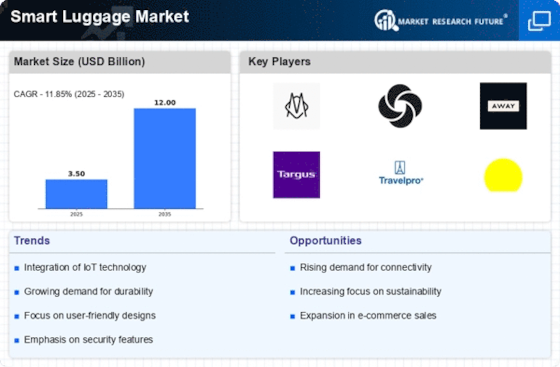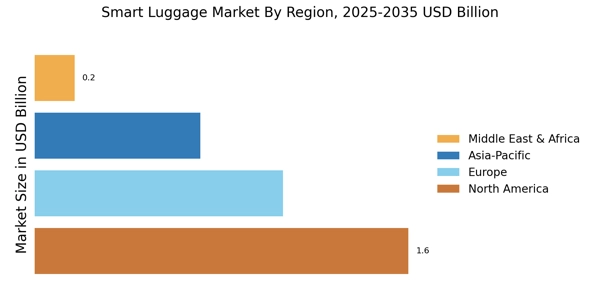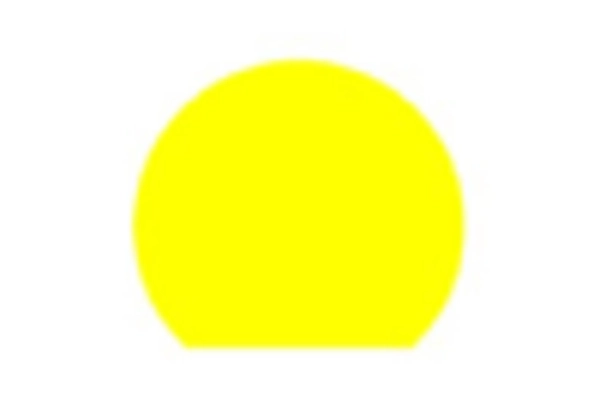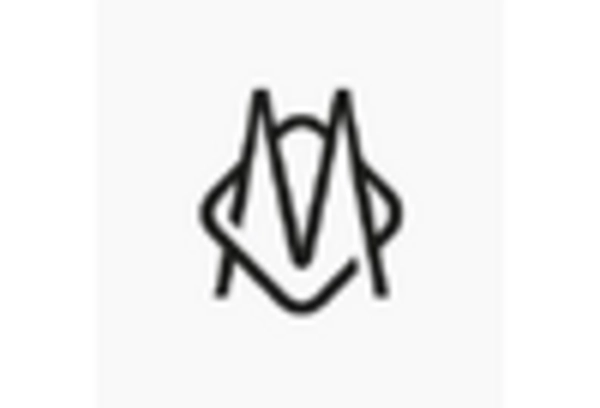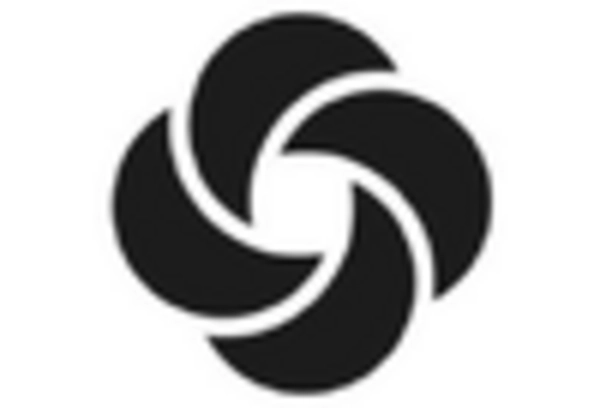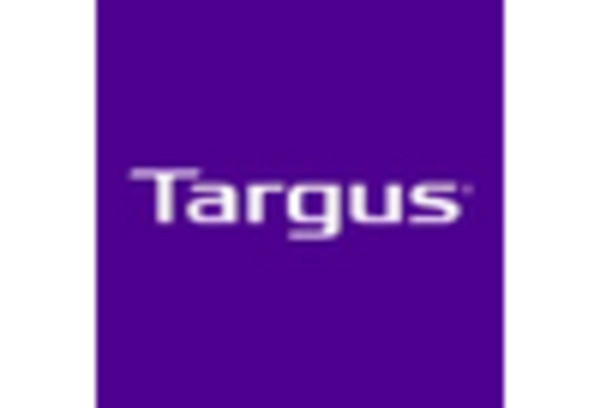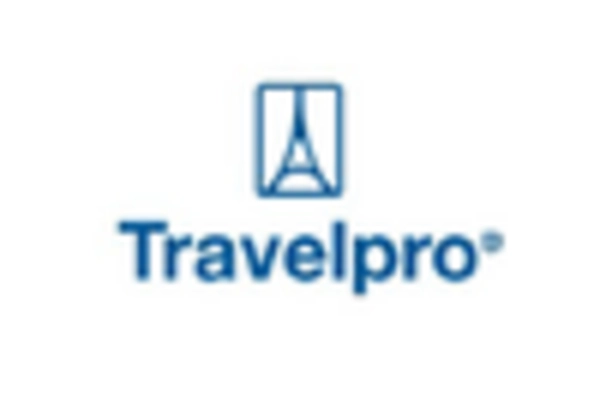Growing Environmental Awareness
The Smart Luggage Market is witnessing a shift towards sustainability, as consumers become more environmentally conscious. Manufacturers are increasingly adopting eco-friendly materials and production processes to appeal to this demographic. In 2025, it is projected that the market for sustainable travel products will reach approximately $200 billion, indicating a significant opportunity for smart luggage brands that prioritize sustainability. Features such as recyclable materials, energy-efficient manufacturing, and minimalistic designs are becoming more prevalent. This trend not only aligns with consumer values but also encourages brands to innovate in ways that reduce their environmental impact. As sustainability becomes a key purchasing criterion, the Smart Luggage Market is likely to see a rise in demand for eco-friendly smart luggage options.
Expansion of E-commerce Platforms
The expansion of e-commerce platforms is reshaping the Smart Luggage Market, providing consumers with greater access to a variety of smart luggage options. Online shopping has become increasingly popular, with a significant portion of consumers preferring to purchase travel accessories through digital channels. In 2025, it is estimated that online sales of luggage will account for over 40% of total sales, reflecting a shift in consumer behavior. E-commerce platforms enable brands to reach a wider audience and offer competitive pricing, which can drive sales growth. Additionally, the convenience of online shopping allows consumers to compare features and prices easily, further influencing their purchasing decisions. As e-commerce continues to grow, it is likely to play a crucial role in the expansion of the Smart Luggage Market.
Increased Focus on Security Features
Security concerns among travelers are prompting a shift towards smart luggage equipped with advanced security features, thereby influencing the Smart Luggage Market. With rising incidents of lost or stolen luggage, consumers are increasingly prioritizing safety when selecting travel accessories. Smart luggage often includes features such as remote locking mechanisms, GPS tracking, and alerts for unauthorized access, which provide peace of mind to travelers. In 2025, it is estimated that nearly 30% of consumers will consider security features as a primary factor in their luggage purchasing decisions. This heightened focus on security is likely to drive innovation and competition among manufacturers, as they strive to meet the evolving demands of consumers in the Smart Luggage Market.
Rising Demand for Travel Accessories
The Smart Luggage Market is experiencing a notable increase in demand for travel accessories, driven by the growing number of travelers worldwide. As travel becomes more accessible, consumers are seeking innovative solutions to enhance their travel experience. In 2025, the number of international tourist arrivals is projected to reach over 1.5 billion, indicating a robust market for smart luggage. This surge in travel is prompting manufacturers to develop luggage that integrates technology, such as GPS tracking and built-in charging ports, catering to the needs of tech-savvy travelers. The convenience offered by smart luggage, including features like weight sensors and remote locking, aligns with the evolving preferences of consumers, thereby propelling the growth of the Smart Luggage Market.
Technological Advancements in Luggage Design
Technological advancements are significantly influencing the Smart Luggage Market, as manufacturers increasingly incorporate cutting-edge features into their products. Innovations such as biometric locks, built-in scales, and mobile app connectivity are becoming standard in smart luggage offerings. These advancements not only enhance security but also improve user experience, making travel more efficient. According to recent estimates, the smart luggage segment is expected to grow at a compound annual growth rate of over 20% through 2027. This rapid growth can be attributed to the integration of Internet of Things (IoT) technology, which allows for real-time tracking and monitoring of luggage. As consumers become more reliant on technology, the demand for smart luggage equipped with these features is likely to rise, further driving the Smart Luggage Market.


